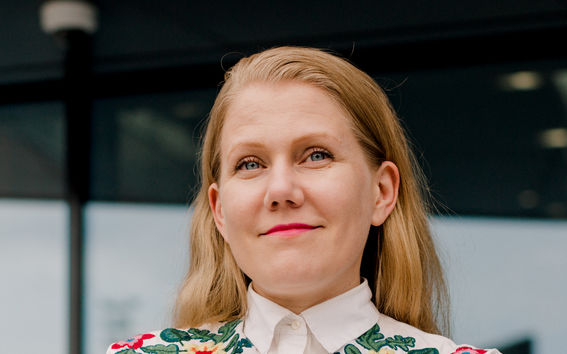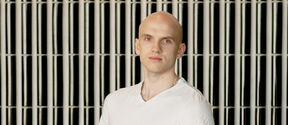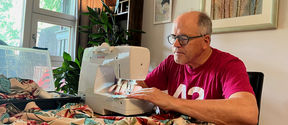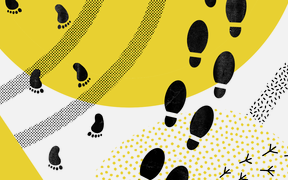How did you get into your field?
I first applied to Aalto to study industrial design in 2000. I wanted to support the accessibility of quality design. For me, that means making everyday life smoother through inventive usability. I wasn’t admitted to Aalto, so I started a career in clothing. I studied for a degree in tailoring at what is now called Stadin AO, Helsinki Vocational College and Adult Institute, and worked in luxury clothing in Paris.
But I had to return to my original idea of making the world a better place, so I applied to Aalto again. I started my undergraduate studies in 2013, and now I have been working on my PhD for almost three years. The dissertation is about leveraging service design to support social justice.
When I started, I had ethical and fair design equality or quality accessibility in mind. Pretty quickly during my undergraduate studies I realised that it is possible to design services and public services. It struck a chord with me. In my work, I specialise in the inclusion of special user groups, such as the elderly, families with children, people with disabilities and, later, people with foreign backgrounds. There are so many special user groups, depending on the situation, and at any given moment anyone can need something special in terms of accessibility.
Can you share a story about your work?
I work with people, and my dissertation is in cooperation with the City of Espoo's employment services. We originally set out to investigate the inefficiency of matching: why were there open vacancies and unemployed people with qualifications at the same time?
Highly skilled immigrants are the most underemployed group. They are also often in jobs where the job content does not match the level of education. Then we are talking about ‘brain waste’, whereby the economic benefits to society are not used - let alone the impact on the well-being of the individual. Espoo has one of the largest and fastest growing immigrant populations in Finland. In less than ten years, probably a third of the residents will be of non-Finnish or Swedish-speaking origin.
The aim is to investigate what can be done in the employment services of the City of Espoo to increase the employment rate of highly skilled immigrants. As the first in Finland, we have developed together the Competence Centre for Highly Educated Immigrants (Koske). In its first two years of operation, it has employed more than half of its clients in a job in their field – that means hundreds of people.
Service design involves participation and inclusion - the best usability is achieved through co-design. The Koske service was designed with the involvement of its users before it was launched. By users, we do not only mean unemployed migrants, but also service providers, city planners, employers, and educational institutions. So, it took a very wide range of perspectives to achieve an outcome that benefits everyone involved – the employment outcome speaks for itself.
To quote the city people, we saved years of work with participatory planning. Instead of guessing what people need, we asked them directly in interviews and workshops how they see it. The City of Espoo has been a truly wonderful partner, a place to work and play. Espoo representatives are supportive and enthusiastic, and we have a lot of fun together. Now, in October, the City of Espoo will join us for a panel discussion on the social impact of design at the European Academy of Design conference.
















